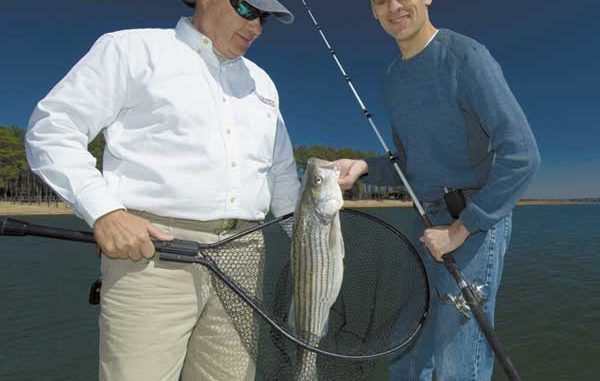
Want to learn a new technique or tackle a lake or river you’ve never fished before. Maybe you’re traveling, on vacation or don’t have much time to learn and research the lures and techniques that work on a lake or river during a particular season. A local guide is often the best answer to having success when you simply can’t do it on your own.
Some things to consider before hiring a guide on your next outing:
• Use the Internet. Can you imagine not having the Internet as a research tool? It wasn’t that long ago that we had to rely on out-of-date magazine ads and word of mouth for fishing and travel information. Now we have at our fingertips vast information on fishing destinations and reports, guides and even guide reviews.
• Pre-trip communication. When you find a guide who meets your basic requirements, give him a phone call. Before booking a trip, take some time to establish a dialog with the guide. What are your expectations? He or she should tell you whether or not they are realistic or not.
A guide will want to know a bit about your experience and skill level. Be honest. Communicating frankly with each other before the trip will help the guide plan accordingly and help you avoid disappointment later.
If you have your heart set of a certain type of fishing, be sure to let the guide know. He or she may not be familiar with the sort of fishing you want to do. For example, if you prefer using artificial lures, but the guide is accustomed to only using live bait, you might want to know that in advance.
If your goal is pursuing a few big fish instead of numbers of smaller fish, let the guide know in advance. It is your trip and your money.
It is a good idea to ask if your prospective guide is properly licensed for the water you are fishing. This is not only a good indication of the guide’s knowledge of the place, but also his or her professionalism. It’s also good to know how long the guide has been in business and working in this particular area.
• Know exactly what you are paying for and how much time the trip actually covers. In order to manage your time and schedule, you need to know when you need to arrive at the water and when you will be done. Ask if the fee includes lodging or food. Some include one or both, while others include neither. Some guides charge extra for live bait, while others do not. These are all considerations you should know in advance.
• When you get to the water and begin to fish, listen to your guide. This would seem obvious, but it ranks high on the list of pet peeves with working guides. Your favorite lure or technique might be just fine on your home lake or river, but you’re in unfamiliar territory. This is precisely why you hired a guide in the first place. Your guide is the expert, so defer to him or her with technique and lures or bait if your serious about catching fish. If your guide makes a suggestion, always take it.
• Ask lots of questions. Any information you glean might help you on a return trip at a later time. Ask about fishing conditions during other times of the year, other fish species in this body of water, the wildlife, natural history, and cultural history of the area. Chances are, your guide knows the place intimately, and learning about a new location is always fun and makes the trip even more rewarding.
If your fishing trip of a lifetime involves hiring a guide, follow some or all of these recommendations to make it successful and rewarding as possible.



Be the first to comment